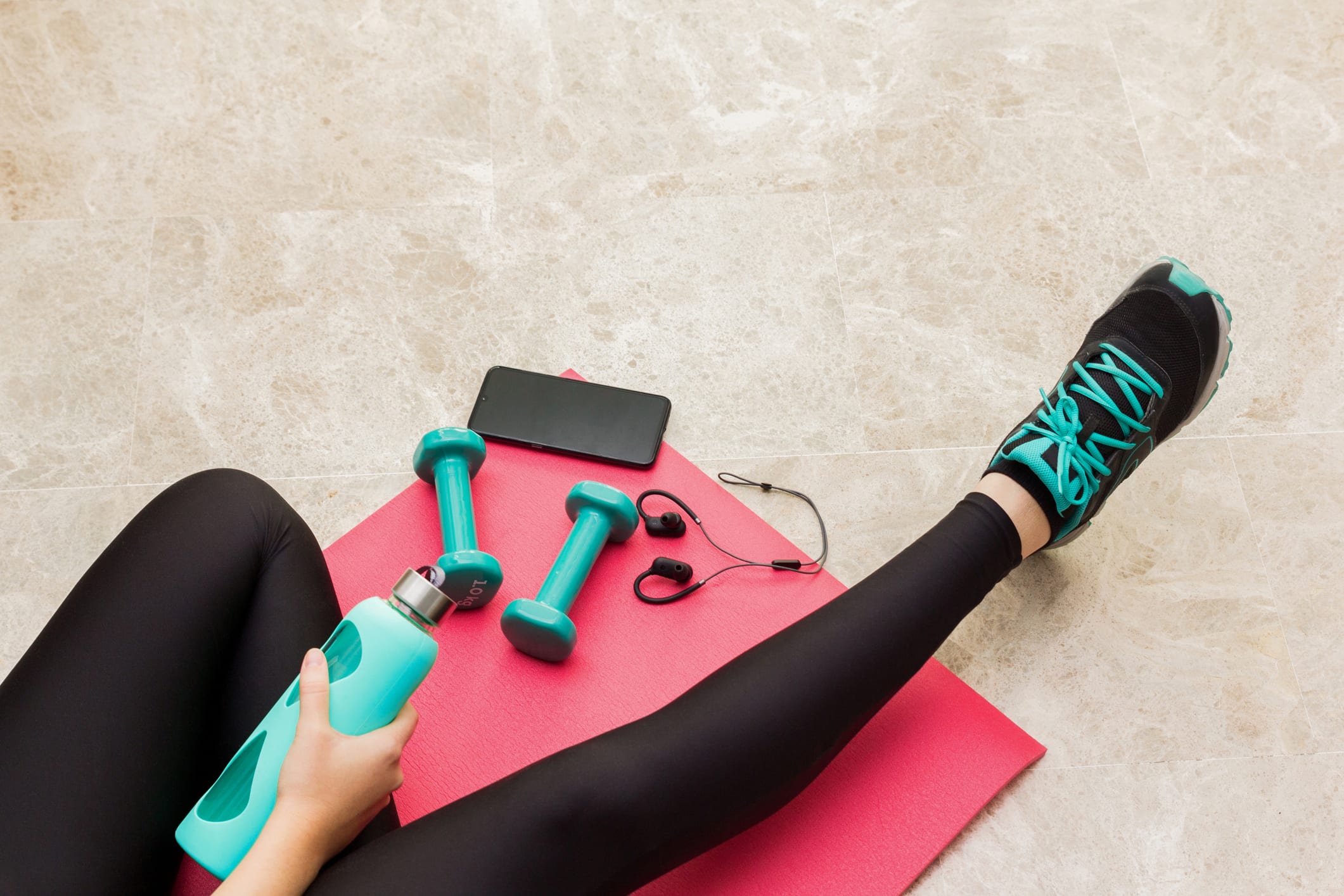Have you ever heard of 0G? It was the term used to refer to the first mobile phone. In 1973, the first mobile phone call was from a device that weighed almost 1.1 kilograms. It had dimensions similar to a small brick.
What a difference almost 50 years has made. Phones can now comfortably fit in the palm of your hand, and most use 5G technology.
It is this latest mobile technology that allows mobile phones to do so much more than make calls. Mobile applications or apps are allowing many industries to provide services via mobile devices. The healthcare industry is no exception.
According to research, 74% of hospitals that use them to collect data are more efficient. This is when compared to facilities that don’t. Your facility can be more efficient too! Read on to learn more.
What Is Mobile Health?
Mobile health or mHealth involves the use of mobile devices to practice medicine. Over the years it fuelled the creation of innovative apps. These not only help healthcare professionals but patients as well.
As technologies advance, patients are becoming more comfortable with the use of apps. In many cases, they use it as a part of their treatment management. Some even use them for guidance about their condition or general lifestyle.
There are now over 400,000 healthcare apps. However, last year, there were only 86 approved apps in the National Health Service (NHS) App Library. The verification of the eligibility of any medical app involves extensive due diligence. This is to ensure each one is safe and secure.
Likewise, healthcare institutions should partner with the right developers. They can create an effective app that is safe and will help with patient care and management.
Mobile Applications Used in Healthcare
There are many health apps for doctors that facilitate better healthcare management. Some are specifically customised for the institution using it. Others provide specialised services. Regardless of which you choose, they can assist with:
- Mental health tracking
- Tracking a patient’s treatment
- Promoting healthier living
- Scheduling appointments
- Women’s health
- Accessing medical databases and reference materials
- Preventative diagnosis
- Reminders for prescription refills, drug interactions, and missed medications
- Patient diets
An experienced app developer can customise all these services based on your needs. They can also do even more. Your app should assist with patient care delivery both on- and off-site. The result should be a well-designed app that ensures success.
How Mobile Devices Are Revolutionising Healthcare
The list above isn’t extensive, but it gives an insight into the use of healthcare mobile devices. You can use customised apps from the time a patient arrives at your facility. It can help monitor their condition throughout their stay as well as after discharge. Here are a few ways mobile devices are revolutionising healthcare:
Records Management
The input of data determines the accuracy of any records. Unfortunately, many mistakes occur when it comes to patient medical data. The use of a mobile device in real time can reduce these errors.
There are tracking mechanisms in place to facilitate this. You may not even need to input these details as they can be easily transferred from one platform to another.
Team Collaboration
This transfer capability can also assist when more than one doctor is caring for a patient. You can communicate with other doctors immediately. This allows you to exchange relevant patient information or get advice.
You can also choose how you wish to do so. You can text, email, or use voice or video calling. This is a plus especially when emergencies arise.
Literature and Training
Mobile devices can also give your team access to medical literature and training. These include:
- Medical research
- Drug references
- Updates and notices
- Textbooks
- Medical guidelines
These guidelines can include your institution’s standard operating procedures (SOPs). This makes sure all staff are on the same page and have access to relevant information and training. This can be especially helpful for new staff members.
If you’re a teaching hospital, you can access your medical students’ training. This allows you to monitor their progress. You can also evaluate the effectiveness of your training programmes.
Successful students will more than likely practise at your facility. The use of mobile devices to treat patients will be an easy transition for them.
Aftercare and Remote Monitoring
When paired with wearable devices, mobiles can help with patient aftercare. This includes remote monitoring. This is essential for patients that may need ongoing care including those that require:
- Mental health tracking
- Heart monitoring
- Pain management
- Rehab assessment
- Collection of clinical data
- Blood pressure monitoring
- Glucose monitoring
This can give their physicians relevant and timely data. They can track the effectiveness of their medications. It can also determine if they need to change the course of treatment.
They can base this on their levels of improvement or lack thereof. It allows for early intervention.
Drug Databases and Prescriptions
You can integrate your drug information databases with your mobile devices. This provides easy access to:
- Drug availability
- Dosing requirements
- Drug interactions and side effects
- Retail pricing
You will have constant access to updated information. This makes prescribing medication less time-consuming.
Once you decide on a prescription and enter the information, you and your staff will have access to it. This can provide your team with a list of a patient’s medications and dosages.
It can also include any drug and food intolerances and help prevent errors that may normally occur during transcription.
Research
You can also research more than just drug information. Some applications will allow patients to enter details about their symptoms or conditions as they occur. You can access and research their entries from your mobile device.
This eliminates the need for them to wait until their next scheduled appointment. You might even be able to provide them with a solution before their next visit.
This allows you to obtain information faster. It also makes patient care more timely.
Performance Updates
This wealth of information also provides you with details on the health of your facility. You can use your mobile device to track data from staff, patients, and other medical sources. It can help you simplify processes and optimise your workflow.
It will also indicate areas that may need improvement. You can also use apps that assist with business management and keep track of daily activities, schedules, and billing information.
This can help you to coordinate staff for greater efficiency. You’ll also be able to better manage billing and insurance.
Benefits of the Use of Mobile Devices in Healthcare
A mobile device is a convenient, easily accessible tool with many great features. These features, run by customised apps, can provide a wealth of information.
They also facilitate greater usability. Some of the benefits of using mobile devices in the healthcare industry include:
- Improved patient management and monitoring
- Better communication among medical staff
- Immediate access to information
- Tracking features that reduce administrative errors
- Ability to record patient conditions and symptoms via mobile photos
- Mobility that allows easy access to information at any location
- Message monitoring
- Secure access to patient information
- Improved health outcomes
These are just the benefits to healthcare facilities. Patients also benefit from the latest mobile technology.
Benefits to Patients
It gives them easy access to their doctors, without having to physically travel to see them. This lowers the cost of the healthcare required.
They can message doctors about symptoms or new developments regarding their condition. This ensures a greater likelihood of a better outcome for the patient.
However, mobile devices also make scheduling an appointment easier. Patients can receive a reminder the day before their appointment.
The use of mobile devices extends the ability of doctors to provide care. There is now greater accessibility for those who previously didn’t have it which allows patients in remote areas to communicate with their physicians easily.
Apps That Make Healthcare Mobile Devices Effective
More physicians are using their mobile devices to assist with patient care. This became even more important over the past year and a half as Doctors were not able to see some of their patients physically. It forced many to initiate remote monitoring.
But mobile devices continue to do even more for health care professionals. The use of well-designed apps allows immediate input, access, and update of patient data. This is making the treatment and care of patients more efficient.
But you must choose an experienced developer to make sure your app is successful. Glance is a trusted agency with clients all over the world. We can work with you too. Contact us today!
Share this
You May Also Like
These Related Stories

How Mobile Medical Apps Are Transforming Healthcare

Headspace in 2022: How Does It Compare?



